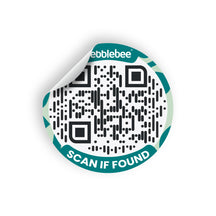Are you considering investing in Bluetooth tracker technology? This growing market attracts more users every day.
These smart tracking devices use low-energy Bluetooth to help you locate lost items like your wallet and car keys, and you don't even need to be connected to the internet to make use of them.
They pair with a companion app on your smartphone so finding a lost item is as easy as opening the app, pressing a button, and listening for a tone. They've already helped many people recover items that could have been gone forever.
While Bluetooth trackers are slim, convenient, and easy to use, you need to consider a few things before you find the tracker that's right for you.
Their Effective Range
Bluetooth trackers are an incredible technology, but you should be aware of their range limitations before you buy one.
Thanks to Bluetooth 4.0 technology, most of these tracking products have a maximum range of around 200 feet. This means that the tracker can locate your item if it's within a 200-foot radius of your smartphone. Some top-of-the-line trackers push that range up to around 500 feet.
Of course, some things can reduce your effective range by a significant margin. Physical objects like walls and trees pose an issue by blocking the Bluetooth signal. It's difficult for Bluetooth signals to penetrate dense materials like bricks, concrete, and metal.
Bluetooth trackers should not be confused with GPS trackers, which are typically bulkier and more expensive. A GPS tracker's range is usually measured in miles, so this tracking technology is better suited for longer distances.
However, Bluetooth trackers offer a few distinct advantages over their GPS-powered counterparts. Bluetooth trackers are more energy-efficient and more cost-effective. Many even come with a community-help feature that allows other users to anonymously assist in the search for your lost item, effectively increasing their range.
Batteries
Another consideration to make before springing for a Bluetooth tracker is its battery. A dead tracker is a useless tracker, so be sure to do your research on battery life and replacement methods.
Bluetooth trackers can either have rechargeable batteries, replaceable batteries, or non-replaceable batteries.
Of all trackers, those with non-replaceable batteries usually last the longest. You'll get up to two years' worth of use out of a single battery, but, when the battery dies, you'll have to replace the entire tracker.
Trackers with replaceable batteries have a wide window of battery life. Some last around 6 months while others can last up to two years. This depends on the model of the tracker you buy and what batteries you use.
Some companies offer a battery replacement program and will ship you a new one for free.
Finally, trackers that use rechargeable batteries have the shortest battery life. You'll likely need to recharge your tracker once every few weeks, though some can last as long as six months on one charge.
Trackers with rechargeable batteries are the best option thanks to their convenience and reusability. Look for one that boasts long battery life and you'll never have to worry about buying a totally new tracker or waiting for replacement batteries in the mail.
How You'll Use Your Tracker
You can attach a Bluetooth tracker to anything from your wallet to your dog, but some trackers are better equipped than others for certain use cases.
If you plan to use Bluetooth tracking to find your wallet, look for one with a slim design so it doesn't add bulk to your wallet. Better yet, some trackers, like the Black Card, mimic the size and shape of a credit card so they slide into a pocket with ease.
Obviously, that design would be totally incompatible for use as a dog tracker. For that, you can invest in a keychain-sized tracker to clip onto your pet's collar or use a tracker specifically designed for dogs.
For smaller items like keys or TV remotes, a keychain-sized tracker will be your best bet. Their tiny size makes them unobtrusive.
Ringer Volume
The sound your tracker makes when it pings your item is one of its most important features. If you can't hear it, you won't be able to find your item.
Despite their small size, Bluetooth trackers boast some powerful speakers. They really need them too, since you'll need to hear its chime even if the tracker is buried at the bottom of a backpack, on a different level of your home, or over the din of a busy public space.
Look for a tracker that features a volume of at least 100 decibels, though more is always better. Some trackers even allow you to adjust the volume so you can crank it up public and turn it down while you hunt for the remote late at night.
Compatibility
To get the most out of Bluetooth tracking, it needs to interface with all of your devices. An Android user has no use for a product exclusive to iPhones. You'll also likely need to run your phone's most current operating system for security purposes.
Some trackers are even compatible with digital assistants like Amazon Alexa or Google Assistant. This lets you search for your missing items with a simple voice command. If this sounds appealing to you, hunt down a tracker that makes this possible.

Cost
The market for Bluetooth trackers is full of offerings at all price points. Some are inexpensive and offer few features while others are rather pricey but come with tons of added benefits like crowd-sourced GPS and sleek but durable styling.
Like most other consumer goods, more expensive trackers will last longer, have a longer battery life, and are made of higher quality materials.
Is Bluetooth Tracker Technology Right for You?
Thanks to tracker technology, losing your most important items can soon be a thing of the past. When you shop for yours, keep their range, battery life, and your specific use cases in mind.
Ready to buy your Bluetooth tracker? Check out Pebblebee's line of Bluetooth trackers. Their high-quality products boast some of the longest ranges on the market and their rechargeable batteries can last up to six months.






